An archival document revealed to debunk the myth about Andrey Sheptytsky as a German collaborator
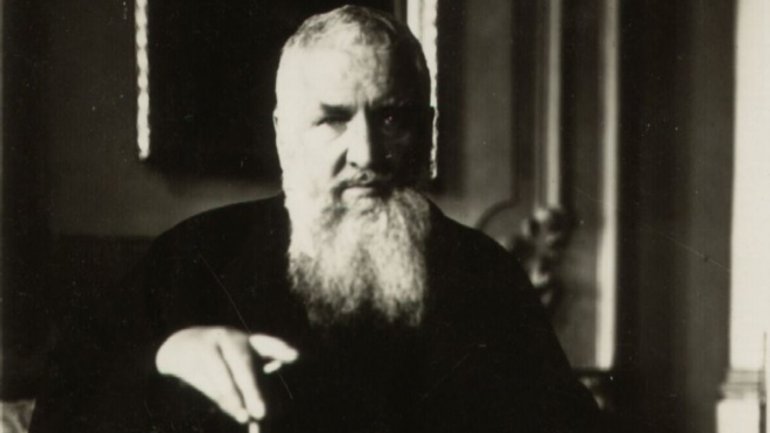
In the context of the discussions around the figure of Metropolitan Andrey Sheptytsky that are currently ongoing in Ukraine, historian researcher of the Sheptytsky family, Ivan Matkovsky, published on Istorychna Pravda (Historical Truth) a manuscript with an appeal to Ukrainians, signed by Metropolitan Sheptytsky at the beginning of July 1941 after Lviv was occupied by German army.
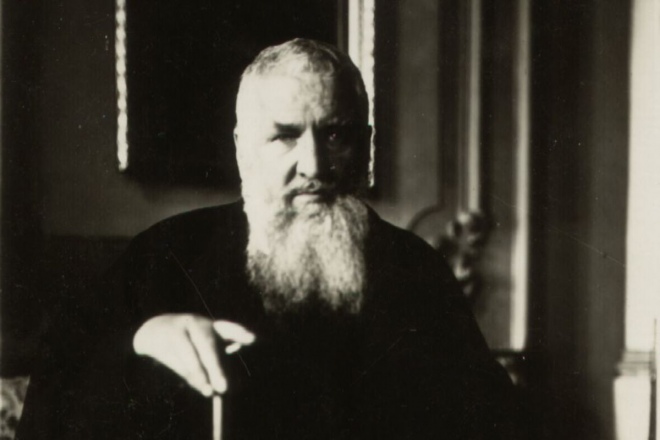
Actually, this document causes prejudice against the Metropolitan, both from the representatives of the Polish people and the Jewish people.
So, on the night of June 30, 1941, at 4.30, a delegation consisting of an Abwehr captain, who was a liaison between Minister Rosenberg and the South Army Group, Hans Koch, and Sonderführer Keith, Yaroslav Stetsko, and Fr. Ivan Grenyokh.
They put on the table an appeal that the Metropolitan was to congratulate the German army and support the civil government of Jaroslav Stetsko. German officers deceived Andrey Sheptytsky, saying that Hitler had agreed to create a Ukrainian State.
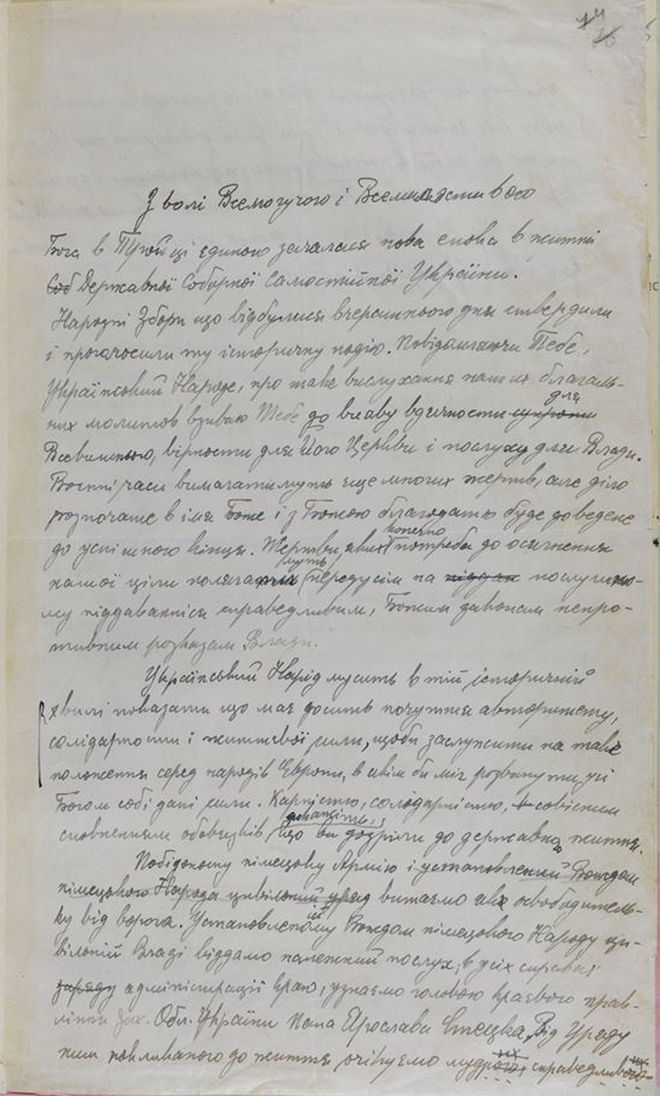
However, in the absence of Sheptytsky's support, the visitors said, and if no text to the Ukrainians was published, the German authorities would not agree to the announcement of the Reconstruction Act of Ukraine.
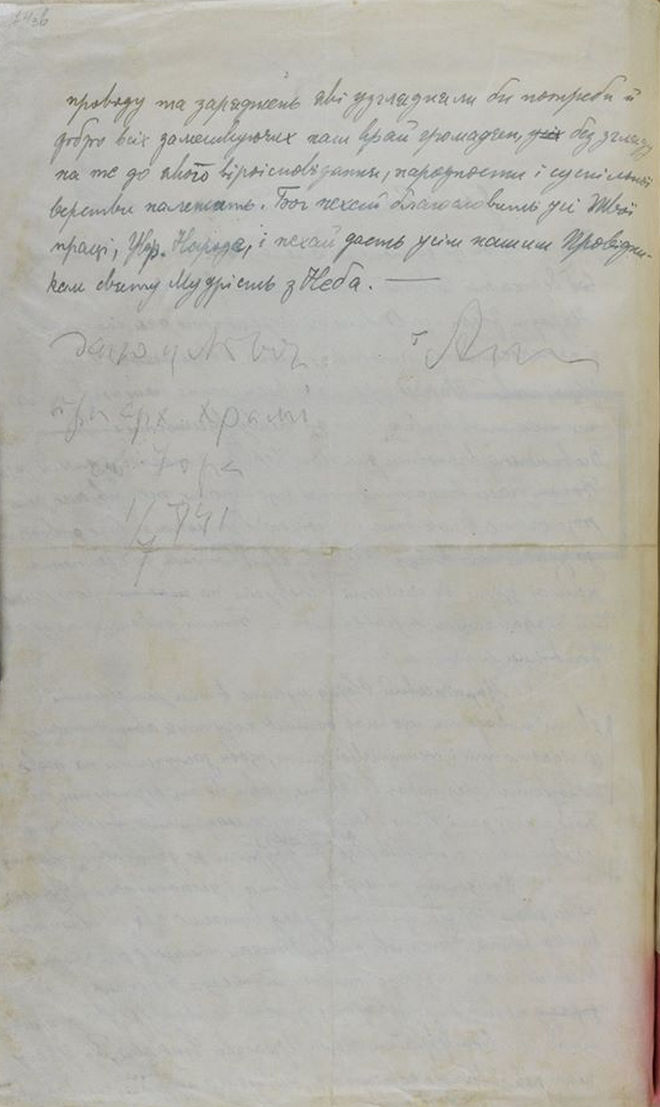
We were being persuaded for 4 hours. The manuscript of Sheptytsky's address is now published and we can see that he did not write it with his own hand. Moreover, Sheptytsky found the courage to cross out the phrase "the Government established by the leader of the German people".
Later, this text will be typed, but the phrase will still remain and Andrey Sheptytsky will again cross it with his own hand.
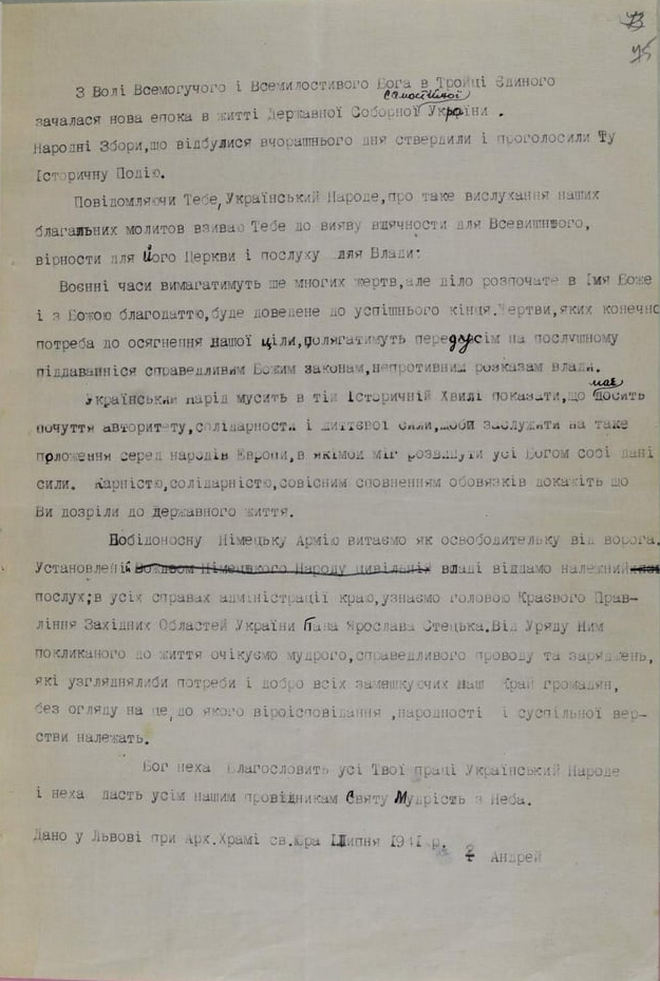
The appeal was positively assessed by the rabbi of Lviv, David Kagane (rescued by Sheptytsky during the Shoah - ed.), who wrote that it was necessary to have the courage to state that the authorities should treat the inhabitants of the Krai regardless of their national origin and religious affiliation.
"Of particular interest to Jews is the pastoral message of Metropolitan Sheptytsky, written on July 1, 1941, shortly after Ukraine declared its independence.
In his message, the Metropolitan calls on the Ukrainian people to obey, discipline and obey the instructions of the new government. He expects from a new government and even asks it for regulations and laws based on justice that will guarantee the well-being and prosperity of the entire population, regardless of religion, nationality or social status.
It is this passage from the Metropolitan's epistle that is so important to the Jews, which tells us much about its author. In those crazy days, public statements about the duty or tolerance of adherents of other religions, under which the metropolitan, without concealing it, understood first and foremost the Jews, required considerable courage and rigidity of moral foundations.
It is not unnecessary to recall that, at that time, Ukrainians, unfortunately, also participated in the beating of Jews. Such appeals were extremely unpopular, and the one who proclaimed them was at considerable risk,” wrote Rabbi Kahane in his Diary of the Lviv Ghetto.
"That's the story. Maybe my post will reach the historian who expertly explores this topic and refutes the myth of Sheptytsky as a German collaborator. This document is available at the Central State Historical Archive in Lviv. Unfortunately, no one is in a hurry to explore this topic and to speak professionally about the mysteries of history since then," writes Ivan Matkovsky.









